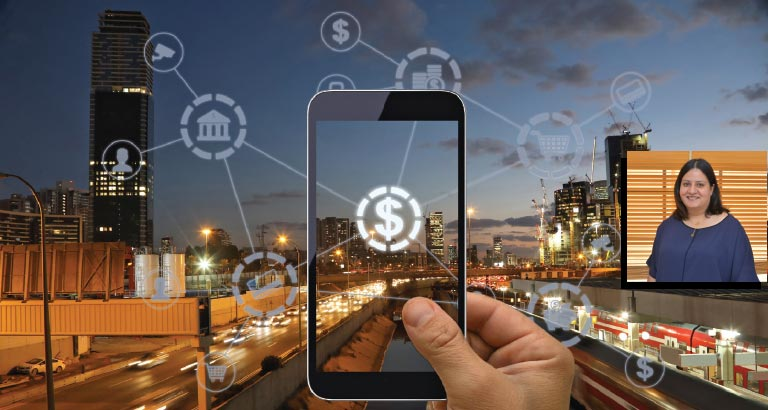
Financial expert Pria Mason Tanwar says fintech is an inevitable union, making our lives seamless.
The trickle-down economic theory works on the premise that whatever benefits accrue to the highest income categories eventually filter down to the lower income categories as well. One of the many reasons this could be true, is that, for organisations offering these benefits, they can experiment on a niche (small numbers and rich) audience and eventually realise the economic benefits of scale by providing the same to a wider audience. Banking services work on this concept. Technology works on this concept. It was a matter of time for the two business areas to join hands and become one unique product. And the world then welcomed Financial Technology or “fintech”.
Fintech today is all around us and we often take it for granted. That simple SMS you get when you withdraw money from an ATM – that’s fintech at play. The internet banking that you use. The mobile app for your bank. Banks have found ways, through technology, to make themselves easily accessible to you. And the more accessible they are through technology, the more you tend to interact with them or “use their services”. If you have payee added to your mobile banking app already or one app makes it easier to add versus the other, you are more likely to use that app. And when you use that app and transfer that money, who is the one who benefits the most? That’s right, your company or bank does.
Through fintech, even entities that don’t traditionally offer banking or money-related services are able to. For example, your Batelco b-wallet or the Viva Cash. These are payment systems integrated into applications created by our mobile service providers. This makes your mobile operator’s app a one-stop shop for you. You can recharge your phone, send money to other numbers and buy your groceries or cinema tickets all in one simple app.
Ever wonder why this makes great business sense? The answer is simple, when you load your wallet or prepaid card, for example, you provide the company with up-front cash which they are then free to use. They reward you for this upfront payment with ease of payments and with deals and promotions. And they can do this because the up-front cash you give them, when aggregated, is worth so much more than the deals they can provide. For you, its money you can use anywhere, making it a perfect win-win.
For expatriates who regularly send money home, most money transfer agencies now have apps that allow you to link bank accounts and send money home with a click of a button. EWA bills, phone bills and even school fees – all with just a click. Food can be ordered with an app – and again you can add money to the app so that you don’t have to have cash lying around.
The key area of caution is, however, the safety of the money you give up front. So, if you’re adding money to your Amazon prepaid card, Amazon is a large well-established company and it’s unlikely that anything will go wrong. Likewise, for any established local business operator. The danger lies in treating all fintech providers as equal. Because your money is only really as safe as the person you are entrusting it with. And with technology, the fancy application and the easy front-end makes us forget that there is a back-end to it all.
Technology that allows us to interact with money has quickly become so deeply embedded in our daily lives that we find it inconvenient when we must try to make payments. We have taken its seamlessness for granted, in a way. That’s the way all easy habits form, isn’t it? Its so easy to get used to something so good and simple. But remember, all that’s good comes with a price. It does not mean you don’t buy it, it just means that you stay aware of that price. Always.
You can follow Pria’s Instagram account at money_cues or view her profile at http://www.i2d-consulting.com



